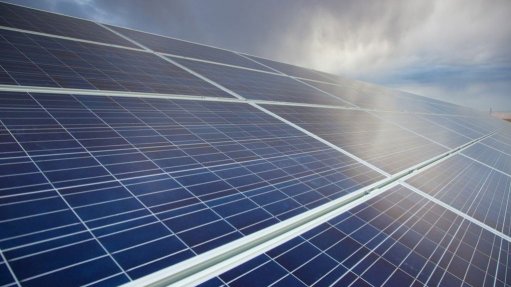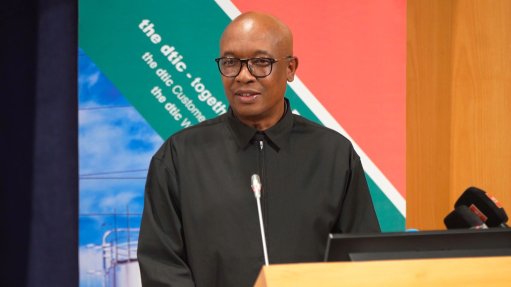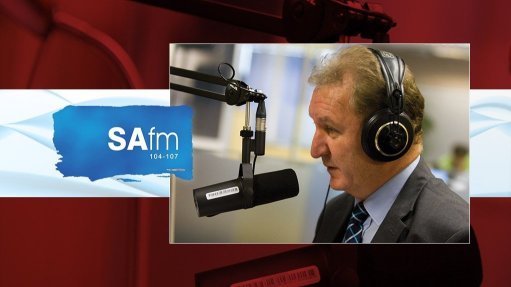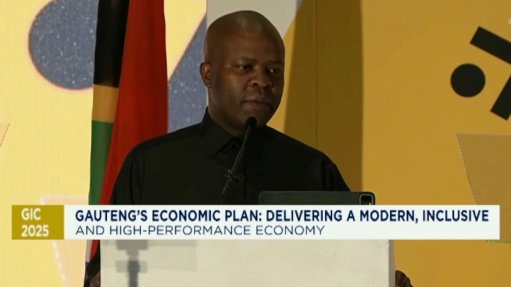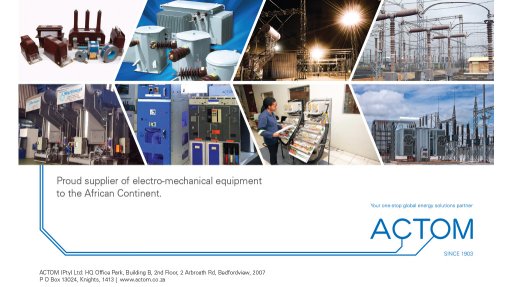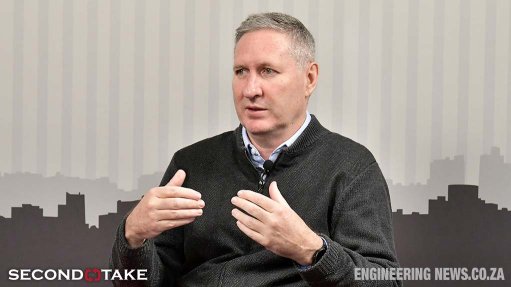AfCFTA investment protocol has international best practices, dispute settlement annex still outstanding
Continental trade bloc the African Continental Free Trade Area (AfCFTA) aims to integrate regional trade blocs to unlock synergies to drive more intra-African trade and enable countries to derive mutual benefits from trade in goods and services.
To enable the AfCFTA Agreement, various protocols have been developed, including three so far, namely the protocol on goods, the protocol on trade and services and the investment protocol.
The AfCFTA investment protocol is a modern trade and investment treaty, meaning that it provides protection, rights and obligations for investors and States, law firm Cliffe Dekker Hofmeyr (CDH) partner Njeri Wagacha said in a briefing on February 29.
"The aim is to create liberalised economies through an enabling regulatory framework to enable the fluid movement of people, goods and services in AfCFTA. Therefore, this also relates to the creation of regional value chains, which, in turn, links through to manufacturing, the movement of raw materials through to the production and export of final goods for the broader benefit of the continent," she explained.
The potential of the AfCFTA to boost trade and development was significant, but depended on its effective implementation, including harmonising the regulatory framework to attract investment into infrastructure and particularly trade infrastructure, she noted.
The AfCFTA investment protocol was a critical protocol, as investments were needed to unlock the potential of intra-African trade, said CDH dispute resolution practice director and industrials, manufacturing and trade sector head Jackwell Feris.
"When we look at trade globally, Africa has the lowest proportion of trade with other countries in its region, with only about 15% of African trade taking place with other African countries.
"A lack of interconnectedness on the continent increases the costs of products. We need more investment in infrastructure, particularly trade-related infrastructure, without which the continent will not have an effective system to trade goods and services," he said.
The purpose and intent behind the AfCFTA investment protocol is to provide uniformity for African investors. It is an investment treaty among African States with the aim of providing a legal framework and protection for investors to promote investment among African States.
The beneficiaries of the investment protocol were investors within Africa, but there were other means for international investors to derive benefits, including by domesticating within an African country to then invest into the rest of the continent, he added.
"This type of treaty is common worldwide, in developed and developing economic regions. There is always a risk when investing, and investors want to ensure that their investments are protected," he said.
The AfCFTA investment protocol must be ratified by all 47 member States and, with only five or six outstanding, the hope was that the protocol would be adopted this year, or early next year, Feris added.
Further, the AfCFTA investment protocol is a modern treaty that not only provides protection for investments, but also places obligations on investors. In particular, the protocol provides for support of the Sustainable Development Goals. Investors are expected to meet human rights, anticorruption and environmental and social sustainability obligations, among others.
These were best practices for investors, and the investment protocol similarly provided for State obligations, such as providing assistance to the investor, he noted.
"We need a massive amount of private sector investment in African infrastructure, as some estimates state that the continent needs $100-billion a year in infrastructure funding, with this rising to $170-billion a year by 2025," he emphasised.
Additionally, bilateral investment treaties between African countries would terminate five years after the investment protocol came into effect, although most such treaties contain sunset clauses, he noted.
This is to create harmonisation and a uniform system for investment protection.
The AfCFTA investment protocol includes additional articles compared to normal bilateral investment treaties, such as ensuring the government of a State has the right to regulate investments in the interest of the public, and that investors have a right to compensation in the event of expropriation or expunging of their investments, among others.
"An important part of the AfCFTA investment protocol is cooperation among member States. This needs to be replicated across the continent because regional value chains need to be created and become dominant in their particular areas and then trade among themselves.
"The economic blocs, such as the Economic Community of West African States, the East African Community and the Southern African Development Community (SADC), are fundamental to the AfCFTA, but they need to become more integrated, which will happen gradually," Feris said.
Meanwhile, the AfCFTA investment protocol did not yet have an investor-State dispute settlement (ISDS) annex, although this was being drafted, said CDH dispute resolution practice director Vincent Manko.
"When it comes to the interpretation of legal issues, tribunals sometimes make incorrect decisions, or may lack independence as adjudicators. Therefore, there is pressure on formulating the ISDS annex," he said.
However, the protocol does require dispute prevention and grievance management among States and investors, including that these be undertaken prior to moving to arbitration in an international forum. These include requirements such as placing obligations on States to assist investments experiencing difficulties.
Additional steps to resolve disputes and grievances are also included, such as consultations, negotiations and other attempts at amicable dispute resolution.
"If these additional steps fail, and the parties are unable to resolve the dispute, then they may seek to resolve it through a dispute resolution mechanism, which will be contained in the ISDS annex to the investment protocol.
"This is one of the most contentious issues, as many African States have been taken to tribunals and in many instances lost those cases."
Of note is a bilateral investment treaty adopted by the SADC in 2012, which did not provide for ISDS, and that both parties must refer the dispute for international arbitration, meaning the State would have to consent to international arbitration, which seems unlikely.
A second issue facing the ISDS annex was that the investor's host State would have to assert the dispute claim, meaning investors would have to seek help from their home State to assert their claims, Manko noted.
"We expect the drafting of the ISDS annex to the investment protocol to take four possible routes. The first is that the annex retains and improves on the State system, with certain modifications around the rules of conduct and ethics, including more transparency in the appointment of arbitrators and rules around impartiality, among others.
"The second potential route is perhaps through the addition of an appellate mechanism, if a party gets an unsatisfactory outcome from a tribunal ruling, meaning that the party can go to a different forum to challenge the findings.
"A third route is that the annex may require a multinational investment court, into which an appeal mechanism can be built.
"The fourth route, and most likely option, is that there will be no ISDS, but there will be recourse for investors to domestic courts and retaining the State-to-State arbitrations," he said.
The investment protocol indicated that the ISDS annex needed to be adopted within 12 months of the protocol's adoption, he added. ![]()
Comments
Press Office
Announcements
What's On
Subscribe to improve your user experience...
Option 1 (equivalent of R125 a month):
Receive a weekly copy of Creamer Media's Engineering News & Mining Weekly magazine
(print copy for those in South Africa and e-magazine for those outside of South Africa)
Receive daily email newsletters
Access to full search results
Access archive of magazine back copies
Access to Projects in Progress
Access to ONE Research Report of your choice in PDF format
Option 2 (equivalent of R375 a month):
All benefits from Option 1
PLUS
Access to Creamer Media's Research Channel Africa for ALL Research Reports, in PDF format, on various industrial and mining sectors
including Electricity; Water; Energy Transition; Hydrogen; Roads, Rail and Ports; Coal; Gold; Platinum; Battery Metals; etc.
Already a subscriber?
Forgotten your password?
Receive weekly copy of Creamer Media's Engineering News & Mining Weekly magazine (print copy for those in South Africa and e-magazine for those outside of South Africa)
➕
Recieve daily email newsletters
➕
Access to full search results
➕
Access archive of magazine back copies
➕
Access to Projects in Progress
➕
Access to ONE Research Report of your choice in PDF format
RESEARCH CHANNEL AFRICA
R4500 (equivalent of R375 a month)
SUBSCRIBEAll benefits from Option 1
➕
Access to Creamer Media's Research Channel Africa for ALL Research Reports on various industrial and mining sectors, in PDF format, including on:
Electricity
➕
Water
➕
Energy Transition
➕
Hydrogen
➕
Roads, Rail and Ports
➕
Coal
➕
Gold
➕
Platinum
➕
Battery Metals
➕
etc.
Receive all benefits from Option 1 or Option 2 delivered to numerous people at your company
➕
Multiple User names and Passwords for simultaneous log-ins
➕
Intranet integration access to all in your organisation






